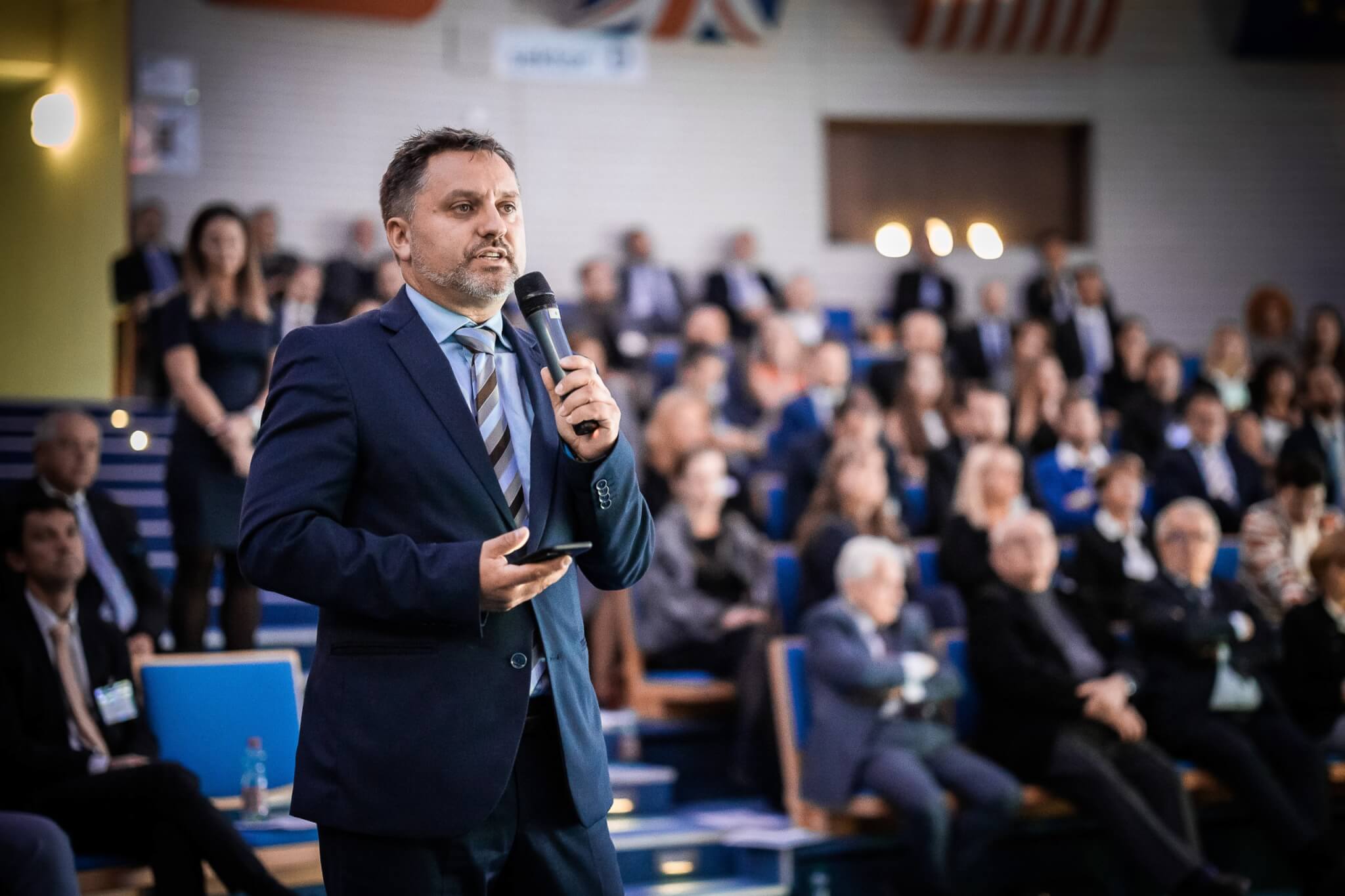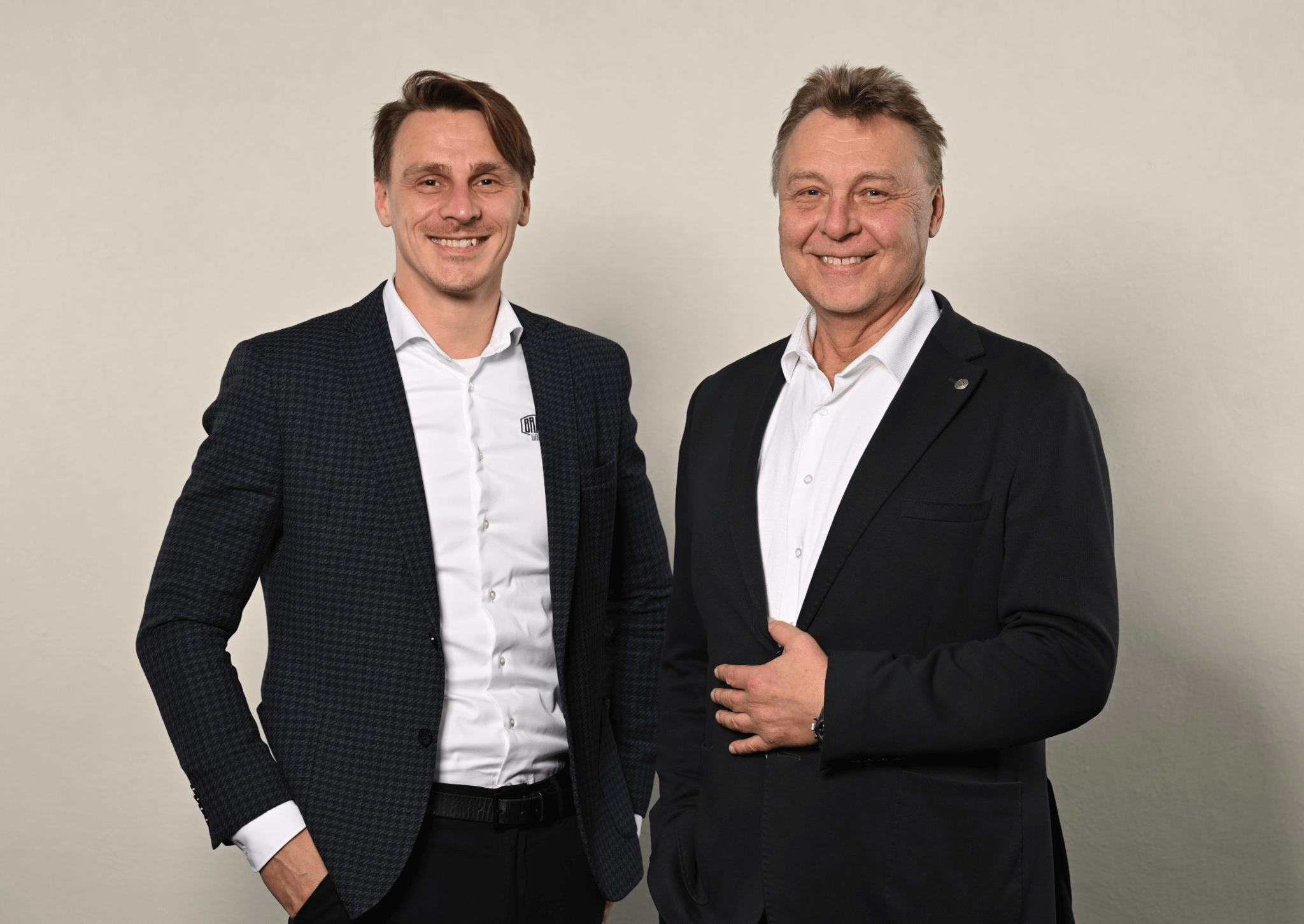“We have wasted a lot of time and weakened Europe, but the fact that politicians are much more willing to listen today gives me some hope – even though I know it will be difficult. Now Europe is beginning to realise that it cannot do without some strategic inputs. So far, people are talking mainly about chips, but I believe that soon they will be talking about steel,” says Jan Rafaj, President of the Confederation of Industry of the Czech Republic.
Fears of a deep recession are growing among our western neighbours. The deteriorating state of the German economy threatens to send shockwaves across Europe. And the Czech economy is significantly dependent on the German economy. Aren’t you worried about that too?
Germany has driven itself into a narrow corner. Its bet on gas from Russia and on engineering products from China, for example, is clearly proving to be a misstep that will hurt Germany badly. And it will hurt the whole of Europe, it is true. On the other hand, it is an opportunity for a reset, for a new set-up in Europe.
So far, everything has been dealt with in Europe by a combination of regulation and subsidies, and now we are reaping the consequences. But it will not mean the end of European industry. I see the current situation as a big shake-up, a warning that we need to start working very quickly on alternative solutions, to undergo some kind of internal transformation.
Some economists talk about the fact that Germany has fallen behind in innovation, that its production is outdated. For example, Marcel Fratzscher, head of the German Economic Institute DIW, told Politico, “Germany has nothing to offer in any of the most important future-oriented sectors, what exists is old industry.” So would you disagree with that?
I don’t think German industry is obsolete. Germany is still a driver of new technology, robotics, automation. Yes, it is facing a very serious problem with the automotive sector because it has played the Chinese card. It has handed over know-how to China essentially for free and allowed its economy, with regulated input prices, to start producing similar quality cars to the Germans, but at lower prices. Now the threat is that they will start exporting cars to Europe. And that’s what the whole debate about German industry is about. The Germans have also hampered their industrial machine with too much red tape and regulation.
We should learn from that. Similarly, we sacrificed the textile industry in the 1990s. We hypocritically opened up the market and did not mind at all that we were buying a T-shirt for 60 crowns that was made by children in Bangladesh in an unhealthy chemical environment. Now we are doing something similar with steel and other critical inputs or products. We used to pretend that it did not matter if our steel mills disappeared because we could buy steel from Asia – regardless of the conditions, the government subsidy and the environmental impact. The new thing is coming with cars.
I think that if we want to start taking our export idea of democracy and a green world seriously and consistently and stop being hypocrites, we have to accept that T-shirts, steel and, in the end, cars are going to get more expensive. We simply will not allow unfair competition from Asia.
Support is needed
Should the EU identify some sectors that it should not get rid of and support them in some way? For example, among the traditional ones, the chemical industry or the steel industry just mentioned, but also the automotive sector?
I am sure that we should have a map of strategic inputs within Europe, including energy, steel, but also, for example, lithium mining or the production of certain strategic components such as chips. Without that, European industry will not move forward.
But it is clear that something is happening. I was delighted when, at the last meeting of the presidents of Business Europe (Confederation of European Business, a lobby group representing businesses of all sizes in the EU and seven European countries outside the EU, made up of 40 national industrial and employers’ organisations – ed.), one of the main themes was ‘how to keep Europe competitive’. Business Europe has a plan and is discussing it with the European Commission. There is a big difference between how the Commission listened a few years ago and how it listens today and how it is willing to revise some of the steps.
Proof that Europe is taking the threats seriously is, for example, the proposal for a law on critical raw materials, which aims to secure the basic raw materials for the green economy. The mere thought of mining again in Europe was previously unimaginable. Greater market protection and stricter conditions for the import of Chinese products, such as electric cars, are also being considered, so that all manufacturers have a level playing field.
Should we wait to see what the EU comes up with when considering support for either old or new businesses, or can we do something ourselves in the Czech Republic without it? What can we be more proactive about? How about trying to attract more foreign investors with generous investment incentives?
Definitely yes. That is why I also welcome the establishment of the government’s Committee for Strategic Investments, which is not only to encourage investment but also to look for ways to simplify legislation for it. I am very pleased that we are already talking about specific investments: the WV gigafactory near Plzeň, the LG battery factory in Karviná, Onsemi in Rožnov, Vitesco in Ostrava, both of which manufacture chips, and many others. These are strategic investments for the future development of Europe.

Mgr. Jan Rafaj, MBA – President of the Confederation of Industry of the Czech Republic. | Photo: SP ČR
Before you took office, you named five priority areas you wanted to focus on in your position: the final Czech product, the Green Deal, digitisation, the labour market and infrastructure. What do you mean by “the final Czech product”? That it must be the result of Czech hands or brains?
Colleagues have already pointed out to me that I should not use “Czech product”, but rather “Czech added value”. We don’t have to produce everything here from start to finish, but we should also supply whole sophisticated systems in the supply chain where Czech research and development has been applied, and not just simple components. So I am calling for more added value to be created in the Czech Republic.
Automotive: no drama
You said at the beginning of the interview that Germany’s problem is the car industry. Which means that we may have a problem too. Do you think it is a good thing that the automotive industry is such an important part of the economy in the Czech Republic? Are you proud of the fact that there are three final car manufacturers and dozens of major suppliers, or do you consider it dangerous today?
I am extremely proud of that. And I don’t see it as any great threat to Czech industry. The development of the automotive industry helped transform the Czech economy in the 1990s. In the Moravian-Silesian region, it managed to absorb people who had originally worked in giant state-owned companies that closed down or transformed. The car companies brought capital and know-how.
You’re talking about it in the past tense…
I’m convinced that cars will continue to play an important role in our lives. We just have to manage the transformation. When I look at the structure of Czech automotive companies, I don’t see any dramas in the future. Most companies are capable of transforming to electro-mobility, or are no longer producing only components connected to the combustion engine. This is not to say that there are no companies that have gone out of business or had a harder transition path.
If it can be prevented from importing cars into Europe that do not conform to the green transformation, I am sure that the automotive industry will continue to have a significant place in Europe in the future and will continue to provide interesting and well-paid jobs. This does not mean that other segments, for example in digitalisation, will not also strengthen.
Apart from ensuring market protection from Chinese imports, is there anything else that the Union is pushing to help the automotive industry transform?
Yes, for example, we are fighting against the original proposal for the Euro 7 standard because we consider it to be irrational. The second thing we are fighting strongly for is the acceleration of the construction of infrastructure for electric vehicles. And the third thing concerns trucks and public transport, where it is yet to be decided which way to go. So far, both hydrogen and pure electric propulsion technologies are being tested.
By the way, what is your relationship with electric mobility? What do you drive?
I am in the testing phase. We have purchased several types of electric cars for our company, from the smallest to executive cars to vans, to test how it works for the company and how to set up the operation. I myself have a plug-in hybrid. I see electric mobility as the future direction. In the past, I have been sympathetic to hydrogen, but it seems to be overlooked in passenger cars in Europe.
What I see today as a barrier to more widespread electromobility is the cost of cars for the average citizen and the infrastructure availability. But I think these are temporary obstacles.
What the European elections will bring
The European Parliament elections will take place next June. Do you think there may be any change in the view on green issues then?
The Commission that will emerge after next year’s elections will have a difficult mandate in terms of the new economic set-up of the EU. It will be a very important election and we do not know today whether the Parliament will be more green or more protectionist, so it will be important who we elect. In any case, certain paradigms that we have lived with in Europe for several decades will be rewritten.
Established paradigms will be changing. Do you think that any of the things that have been adopted in recent years will also change, for example, something about the objectives of the green agenda?
It cannot be ruled out. We can already see that the Commission is rethinking and correcting some of the steps. This concerns, for example, emission allowances. When it found that their price was going up faster than it had anticipated, it came up with instruments to compensate for this.
It is certainly not to be expected that the EU will put the green transformation on hold. However, our debates must focus on being clear about what are achievable targets and what will be their consequences, how they will translate into the price of final products. And, if we want to achieve those targets quickly, whether it is not appropriate to support them with further subsidies. The green economy would come one day anyway. But if we want a rapid transformation, there must be some strong support. I’m not generally a supporter of subsidies, but if you look at the liberal American market, where they are passing ‘subsidy’ laws, it’s clear that Europe has to respond to that.
Labour market still a problem
One of the important factors for the development of the economy is the labour market. The population is ageing and there are fewer people willing or able to work. This is the case throughout Europe. German lawmakers recently passed a new immigration law that removes many of the bureaucratic hurdles that foreign skilled workers faced in settling in the country. The Czech government has approved the Digital Nomad programme, which also aims to facilitate the international mobility of workers. Is it enough?
Far from it. Two years ago, we had already submitted a material to the outgoing government and now again to the new government that was similar to the one approved in Germany. At the time, we pointed out that we needed to change certain sections of the Aliens Act and other regulations in order to make it easier to attract more foreign workers. So far, nothing has been done. And even the draft Aliens Act, which was introduced about three months ago, does not take the matter anywhere.
However, at the last meeting of the Strategic Investment Committee, this was one of the talking points on strengthening the labour market. We agreed that it is possible to take some steps now, for example, to increase the existing quotas. And the Government has promised to do that. We are negotiating on other things and by the end of the summer there should be clear concrete changes that can also be done quickly. So I am also more than slightly optimistic here and I believe that we will move forward in the next two years.
Mgr. Jan Rafaj, MBA
 Jan Rafaj studied law at Masaryk University. He started his professional career twenty years ago at Válcovy plechu Frýdek-Místek and later spent eleven years in various managerial positions at the Liberty smelter in Ostrava (formerly ArcelorMittal). Since 2017, he has been the CEO of Heimstaden, the largest provider of rental housing in the Czech Republic. He is also the Deputy Chairman of the Supervisory Board of OKD. Since 2011, he has been Vice President of the Confederation of Industry of the Czech Republic. In May 2023, he was elected its President.
Jan Rafaj studied law at Masaryk University. He started his professional career twenty years ago at Válcovy plechu Frýdek-Místek and later spent eleven years in various managerial positions at the Liberty smelter in Ostrava (formerly ArcelorMittal). Since 2017, he has been the CEO of Heimstaden, the largest provider of rental housing in the Czech Republic. He is also the Deputy Chairman of the Supervisory Board of OKD. Since 2011, he has been Vice President of the Confederation of Industry of the Czech Republic. In May 2023, he was elected its President.
Contact
Next articles and interviews
Next articles and interviews
+ Show


 Jan Rafaj studied law at Masaryk University. He started his professional career twenty years ago at Válcovy plechu Frýdek-Místek and later spent eleven years in various managerial positions at the Liberty smelter in Ostrava (formerly ArcelorMittal). Since 2017, he has been the CEO of Heimstaden, the largest provider of rental housing in the Czech Republic. He is also the Deputy Chairman of the Supervisory Board of OKD. Since 2011, he has been Vice President of the Confederation of Industry of the Czech Republic. In May 2023, he was elected its President.
Jan Rafaj studied law at Masaryk University. He started his professional career twenty years ago at Válcovy plechu Frýdek-Místek and later spent eleven years in various managerial positions at the Liberty smelter in Ostrava (formerly ArcelorMittal). Since 2017, he has been the CEO of Heimstaden, the largest provider of rental housing in the Czech Republic. He is also the Deputy Chairman of the Supervisory Board of OKD. Since 2011, he has been Vice President of the Confederation of Industry of the Czech Republic. In May 2023, he was elected its President.






